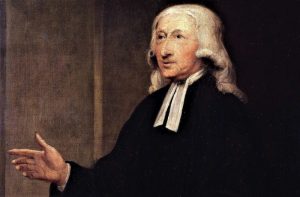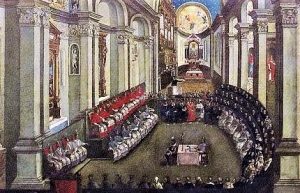Methodism
Methodism was an 18th century movement founded by John Wesley, a man who sought to reform England's Church from within. The movement, however, was separated from its main body and became an autonomous church. There were approximately 15 million Methodists worldwide at the turn of the 21st century.
According to John Wesley, the Anglican priest who began the Methodist movement, a Methodist is a person who is redeemed by grace through faith in Jesus Christ, filled with God’s love by the power of the Holy Spirit, and is someone who loves the Lord God with all his heart, soul, mind, and strength.
Characteristics of the Methodism
The main characteristics of the Methodism are the following:
- It was led by a group of young people who belonged to a group called ” Holy Club ” that had its origin in Oxford University.
- The purpose was to increase the spirituality of its members and to care for the poorest and most needy.
- The conversion experience of the Wesley brothers and George Whitefield together with the “Holy Club” made them lead one of the most important movements of spiritual renewal that endures in the heart of Christianity.
- Approximately 90% of the world’s Methodists are in Africa, North America and Asia.
- It is seen as a combination of New Testament Christianity, the Protestant Reformation and Wesley’s
- Methodism began in England as a movement within the Protestant Church.
- They believe in the Holy Scriptures as the inspired Word of God in which a progressive revelation of God is given.
- For them, God is the First Cause of everything, He is the Creator and He is also the Father.
- They believe that Christ is the only begotten Son of the heavenly Father.
- They believe in judgments after death, that good will be punished or rewarded, and that heaven is mind and spirit.
- They also believe in hell as a form of absence from fellowship.
- They do not share the idea of praying to the saints, nor do they believe in purgatory.
- They have only two sacraments, baptism and the Lord’s Supper. They see baptism only as a sign of regeneration.
- Children when they reach adulthood can be rebaptized and accept valid baptism from the Roman Catholic Church.
- They believe that people can go directly to God and confess their sins, which gives them power to fight against them.
- They insist on love and service of neighbor and that salvation is given through the faith and grace of God.
History of the Methodism
Brothers John and Charles Wesley are the founders of the religious movement known as Methodism. They were members of the Anglican Church in England. So Methodism originated in England as a movement within the Protestant Church and not as a new religious denomination.
Methodism was characterized by three outstanding phases or emphases: holiness of life, abundance of heart joy, and contagious evangelizing fire, so Methodism represented an important spiritual revival within the ranks of Anglicanism.
They defended a methodical life that had to be governed by rules and principles, and for this reason they were called Methodists, the name by which they are known in today’s world. For the Methodists there are three books of great importance: The Bible, the Hymnal, with hymns written and composed by John and Charles Wesley, and the Book of Discipline, which contains the different covenants agreed by the believers adhered to this movement.
Founders
The Methodist movement has its origins in England, and its founders are considered as a group of Christians led by John Wesley, his younger brother Charles Wesley helped by George Whitefield tried to find a way to renew the Church in England in the eighteenth century, through a study focused on the Bible, a methodical approach to Scripture and the relationship and impact that these aspects had with the daily lives of believers.
Importance of Methodism
The importance of Methodism is that it has left us important teachings such as the universality of sin, free salvation for all, the witness of the spirit, and the call to Christian perfection. It is also important because it has neglected radical conversion, giving importance to the witness of the spirit, the moment of entire sanctification and the eschatological urgency of salvation.
How to cite this article?
Briceño V., Gabriela. (2019). Methodism. Recovered on 3 January, 2025, de Euston96: https://www.euston96.com/en/methodism/










